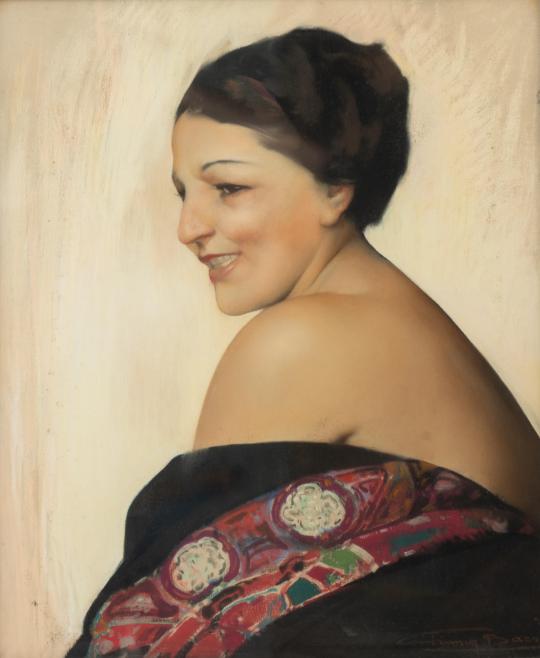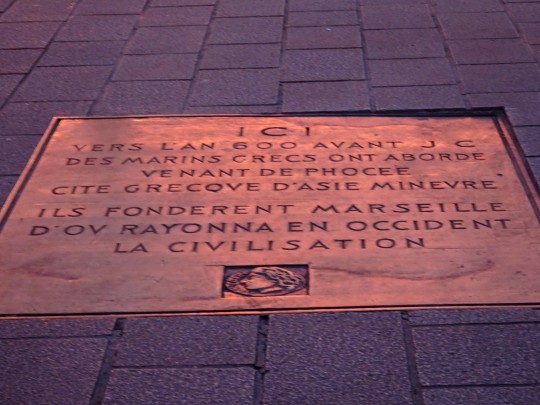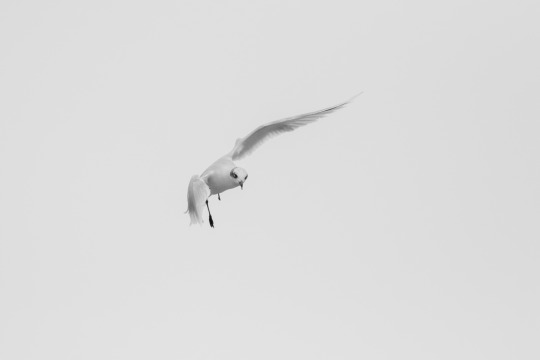#rieuse
Text








l y a 3 semaines, je suis allé à Calais avec un copain, Philippe.
Sur la jetée du Port, de nombreux Gravelots, pas du tout farouches, des Mouettes et un Cormoran.
3 notes
·
View notes
Text




Mouette rieuse - Si sa tête est blanche avec un point noir sur les côtés hors de la saison de reproduction, elle arbore de mars à juillet, en plumage nuptial, une face brune foncée.
Lieu : Boulogne-sur-Mer, Côte d'Opale
#canard#duck#oiseau#bird#animaux#animals#animaux sauvages#wild animals#mouette#gull#sea gull#mouette rieuse#black headed gull
7 notes
·
View notes
Text
Pleine Lune Décembre 2024
La pleine lune de décembre 2024 vous intéresse et vous souhaitez en savoir plus sur son influences ainsi que ses significations ésotériques. Que vous ayez un intérêt prononcé pour l’astrologie ou que vous soyez simplement curieux de la nature et de la spiritualité, cette lune ne passera pas inaperçue. Dans ce contenu, nous vous révélerons la date de cette pleine lune, le signe astrologique qui…

View On WordPress
#Bienfait pleine lune#Effet pleine lune#lune décembre#Lune des longues nuits#Lune du chêne#Lune froide#Lune rieuse#Noms pleine lune#Pleine lune décembre#pleine lune décembre 2023#Signification pleine lune
0 notes
Text

Mouette rieuse
photo:Pascal Maire
0 notes
Text

Un Nu sur la pelouse (La Rieuse) by Julius LeBlanc Stewart (1899)
#julius leblanc stewart#art#paintings#fine art#19th century#19th century art#academism#academicism#academic art#painting#american art#american artist#the laughing one#forest nymph#classic art
700 notes
·
View notes
Text
Sourire
verbe
Prendre une expression rieuse.
Témoigner de l'amitié à quelqu'un par une expression amicale.
Être agréable, en parlant des choses

47 notes
·
View notes
Text

Mouette pas très rieuse…
#photography#original photography#original photography on tumblr#nature#corsedusud#bord de mer#mouette#ajaccio
51 notes
·
View notes
Text

Firmin Baes (Belgian, 1874–1943) • La rieuse (The Laughing Woman) • 1899 • Pastel on paper • Private collection
#art#painting#fine art#art history#firmin baes#belgian artist#pastel painting#portrait#female portrait#unidentified portrait#realism#figurative artist#art & beauty#pagan sphinx art blog#art blogs on tumblr#art lovers on tumblr
37 notes
·
View notes
Text

Jules Joseph Lefebvre (French, 1834-1912)
La Rieuse
67 notes
·
View notes
Text
MOUETTES RIEUSES-Paris

Photo by Valérie Wanègue
#photography#france#nature#photographie#francephotography#naturephotography#original photographers#faune et flore#french photographer#original photography#oiseaux#oiseau#bird#birds#mouette#naturefrance#europe photography#photo#photographer#photographer on tumblr#paris#original photography on tumblr#photographers on tumblr
130 notes
·
View notes
Text
Le cœur se partage
il est comme l'orage
On y cherche abri
On y attend la nuit
Ruissellement bu de l'intérieur
Voix douces comme la mousse
Deux visages remplissent la pénombre
Leurs mains cherchant leurs mains
Dressées
Comme le sont les racines rieuses
Ô cible de ses beaux yeux
Son sourire qui hameçonne la lumière
La mer qui se retourne sur ses pas
Il a dit
Il s'est entendu lui dire
"Comme il fait bon dans les yeux qui croisent
un moment la douceur de toi"
jacques dor
16 notes
·
View notes
Text








Bon, n'étant pas très mobile, difficile de créer des posts avec de nouvelles photos. Je reviens donc à mon projet de présenter l'intégralité de mes photos, projet interrompu à l'année 2017. Je vais donc essayer de clore cette année 2017. Et elle sera close par Marseille aux vacances de Noël.
Au Vieux-Port, le Quai du Port au coucher de soleil. On y voit aussi une mouette rieuse, la plaque commémorant l'arrivée des Phocéens 600 av. J-C. pour fonder Massalia et le marché de Noël
#souvenirs#marseille#vieux-port#quai des belges#couleurs#mouette#rieuse#mouette rieuse#marché de noël#phocéens#massalia
6 notes
·
View notes
Text


Mouette rieuse - Elle doit son nom à son cri semblable à un rire.
Lieu : Parc Charles Bertin - Douai
#jardin public#public garden#canard#duck#oiseau#bird#animaux#animals#animaux sauvages#wild animals#mouette#gull#sea gull#mouette rieuse#black headed gull
4 notes
·
View notes
Text
Pleine Lune Décembre 2023
La pleine lune de décembre 2023 est imminente, et il est possible que vous souhaitiez en savoir plus sur ses influences sur votre vie et ses significations ésotériques. Que vous ayez un intérêt prononcé pour l’astrologie ou que vous soyez simplement curieux de la nature et de la spiritualité, cette lune ne passera pas inaperçue. Dans ce contenu, nous vous révélerons la date de cette pleine lune,…

View On WordPress
#Bienfait pleine lune#Effet pleine lune#lune décembre#Lune des longues nuits#Lune du chêne#Lune froide#Lune rieuse#Noms pleine lune#Pleine lune décembre#pleine lune décembre 2023#Signification pleine lune
0 notes
Photo

Mouette Dans le brouillard.
Hossegor / France.
photo: Pascal Maire
0 notes
Note
Do you have any more information about the Michel Carré/Paul Collin "Sleeping Beauty" opera? I had never heard of it until now.
I knew you were gonna ask ;)
And don't worry you're not the only one, I just heard about this very obscure thing today while doing my early post! In fact, when you go check the Wikipedia articles of both Michel Carré and Paul Collin, you find nothing about any potential work on a "Sleeping Beauty" production... The piece is however evoked, described and link when you go check the Wikipedia page for the fairy, Urgèle.
Now the source for this Wikipedia paragraph is actually a double link to two articles stored by Gallica - the online archive of the BNF (Bibliothèque Nationale Française, National French Library).
The first link is here.
This article is from a newspaper called "Les clochettes algériennes et tunisiennes" (Algerian and Tunisian bells) from the 10th of January 1904. It was a Franco-Algerian newspaper about literature, humor and commercial business published every sunday. In the "Theatrical Week" segment you can read that an "opéra féerique" (fairy-opera, "or so claims the poster" adds the journalist) had its premier at the Municipal Theater: La Belle au Bois Dormant, Sleeping Beauty by Michel Carré and Paul Collin with music by Charles Silver (who received a Great Prize of Rome).
There is a recap of the plot that goes as such. Princess Aurore (Aurora, played by Mme Rigaud-Labenz) was recently born, and her five fairy godmothers (Primevère, Rieuse, Brillante, Sensible, Prudente - Primrose, Laughing, Shining, Sensitive and Careful) call upon her health and happiness. The King, pleased, invites them to a copious feast, but suddenly arrives the wicked fairy Urgèle (played by Mme Corot). Angry at having been excluded of the christening, she casts a curse: if the princess falls in love when she is twenty years old, she will die. We jump sometimes later, before the twenty years are passed - the princess Aurore is wandering, sad and dreaming, in the palace's garden, but her father's reassurance that once she goes over her 20th year without falling in love she will be free from the curse convinces her to not take part in the various games and entertainments of her young female companions. However the Wandering Knight appears (played by M. Broca) - welcomed by the king, he finds himself alone with Aurore. He is very openly in love with her, but when she answers favorably to his advances, she falls in a deep sleep as well as all the inhabitants of the castle.
A hundred years later, arrives the Prince (also played by M. Broca) - as he arrives in a forest he learsn from a peasant woman named Jacotte (Mme Stéphane), wife of the peasant Barnabé (M. Vialar) that the castle he sees on the horizon contains a princess who will marry anyone that is able to wake her up. The prince recalls that one of his ancestors told him that, once he had kissed a princess and she had immediately fallen asleep. Barnabé, overhearing the Prince revealing this secret, decides to go wake the princess and become king - but he is too afraid by the forest at night when he tries to go to the castle, and after stumbling over a rod/bundle of wood, it suddenly lifts itself in the air, carrying Barnabé with it (think of a witch's broomstick). Right after Barnabé was carried off in the air, the Prince enters, still thinking about the princess, and in the fog he sees Aurore that calls for help and tells him she loves him. He immediately rushes to the depths of the wood. Meanwhile Urgèle, in her cavern/grotto, calls against the Prince all the spirits of evil, while the flying piece of wood drops Barnabé right next to her. Urgèle puts Barnabé in a royal suit and sends him wake up Aurore, while suddenly, in a flashing light, Primrose appears saying "Aurore will be free, the times are over!" - which turns Urgèle's grotto into a celestial dome filled with springtime flowers, benevolent spirits and butterflies. Despite many obstacles ("flames, monsters and gnomes"), the Prince wakes up Aurore with a kiss on the forehead. All the servants wake up, and the two young royals exchange love vows. The old royal garden becomes green and alive again, and the good fairies appear, with laying at their feet the wicked fairy, vanquished.
After this recap of the plot, the critic-journalist tells their opinion. They point out that "apparently" it was a success in Marseille and Lyon, while it is currently played in Alger at the Théâtre de la Monnaie. According to the reviewer, its success is due to the "scenic and féerique" part of the work, "because, in truth, the music is too rudimentary. It is a musical dictation carefully written by an applied student, without any spelling or grammar mistakes. M. Silver is a Prize of Rome, which means he knows the technique of his art in a deep way. Unfortunately, he is missing something that is not demande for the examinations: inspiration. Not everybody can have genius, but M. Silver reveals himself as a beginner talent who under-uses his own work. Among four acts and one prologue, not one dominant moment, not one spark that makes the well-tooled orchestra alive. The author aimed at a too great simplicity, and comes off with a too-great naivety. And yet isn't the musical formula smoothly handled by M. Silver the best way to strongly express spontaneous feelings?"
The reviewer than says the actors really did their best to portray the characters - Mme Rigaud-Labenz and M. Broca were, "as usual" a triumph and only deserve a flood of praise - while the other characters were "episodic", and were "correctly held". In conclusion "the staging was very entertaining, and the play deserves to be seen". And the reviewer's name is "Frontin"
[As a personal note, the sources keep oscillating between calling this an opera and a theater play... In fact, Frontin clearly seems to call this a play, even pointing out with some irony that the work claims itself to be an opera.]
As for the other article, given this is already quite a lot, I will add this into a reblog.
#sleeping beauty#sleeping beauty adaptation#carré and collin's sleeping beauty#sleeping beauty opera#french adaptations
21 notes
·
View notes